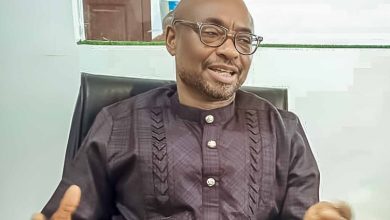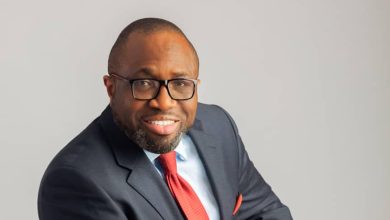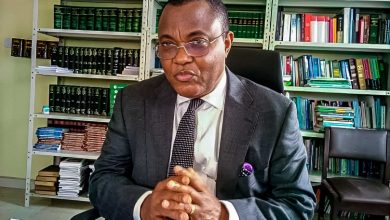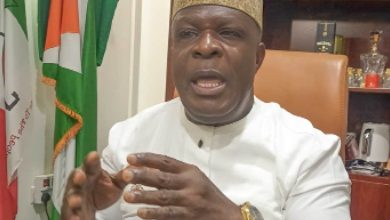Oro Is Sumptuously An Oil Producing Area – Barr Uno
...Once Something Is Scientifically Proven, No One Can Challenge It
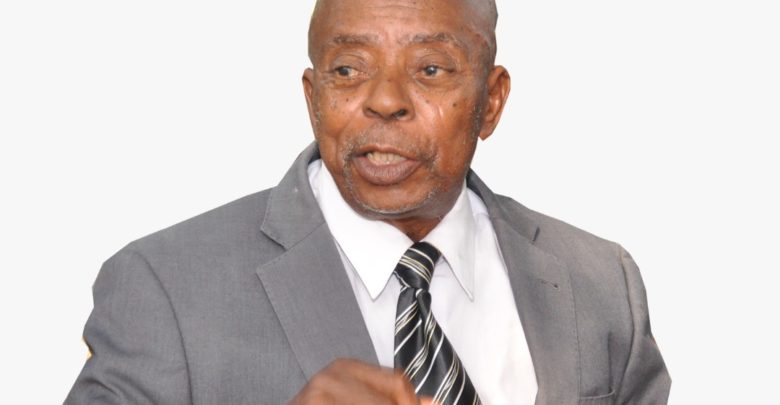
* Oro Is Not Begging For Governorship It’s Our Right
An opportunity to interact with Barr Umoekeoyo Uno is a refreshing encounter. A repository of wide range of knowledge, Uno, from Eyo-Ulo-Oro village in Urue Offong/Oruko Local Government Area of Akwa Ibom State is a veteran legal luminary. Having been called to the Nigerian Barr in 1977, his 44 years of continuous legal practice saw him crisscrossing the length and breadth of Nigeria, basically dominating the legal books of Kano, Kaduna, Lagos, Cross River and other places. A graduate of law from the University of Nigeria, Nsukka, Uno came to limelight when he raised an issue of vicarious liability during the 1991 special conference in Abuja. Uno, who served in the Council for Legal Education and became a member, Presidential Commission in Kaduna, also served as a legal adviser to the Akwa Ibom State House of Assembly for seven years and in 1997, sat as a member, Elections Appeal Tribunal. Respected and called the Professor of Law by senior advocates, including legal Professors, Uno, a member, National Human Rights Commission and Emeritus Chairman, National Human Rights Committee, Calabar had been a panel discussant for Resource Control. In this interview with Joseph Atainyang, Umoekeoyo Uno expressed pains by the refusal of relevant agencies of government to accord the oil producing status onto Oro Nation. He also talks on general political, legal, economic and cultural/religious issues.
Excerpts:
As an elder statesman in Oro, the third largest ethnic nationality in the state, are there developments that do not get you excited?
It is all about the relationship between the Oro people and other ethnic nationalities – the Ibibios, and Annangs. In the 1951 census, the Ibibios and Annangs combined were 7.5 while Oro was 1.5 in population density. The ratio is still what they are using now. That time, Ibibio and Annang were counted as one. As a nationality, Oron is the third largest nationality in the state. Unlike that time that Ibibio and Annang were lumped together, it is clearer now that the Ibibios are the largest ethnic nationality, followed by the Annangs and then the Oronians. This assertion was stated by Chief Nnamdi Azikiwe in his 1965 lecture. He also repeated it in his Odyssey, that Oro is the third group in what is now known as Akwa Ibom State.
It should be noted that at the time Oron was 1.5 in population, the Efiks were 0.5. The statute creating Akwa Ibom and Katsina States in 1987 states that “In the case of Akwa Ibom State, there are three main ethnic nationalities of the Ibibios, the Annangs and the Oronians. And in sharing political leadership, recourse shall be had on equity and good conscience”. This falls in line with the views expressed by Zik in his famous lecture on the 23rd of May, 1965. So, we are not happy about the results which are clearly against the statutes of the state creation. As we are going now, Oron is not likely to have a governor. It is not a thing that should be stretched too far for an ethnic nationality. This is because Zik himself had stated that, “conglomerate units of nationalities may by their consensus agree on leadership.” That is my view and it is also the views of other persons who had been thinking about nationalities.
Are you saying you’re not happy about the inability of Oron people to assume the governorship position 32 years after state creation?
Yes! This is because the Oro people themselves are not doing well. I’m not talking about politicians only. The people should go out there, fight and state their case. If the Ibibios have had Akpan Isemin, the next should have been Annang, and then you get an Oro governor. There is no need going to the senatorial district. At any rate, I challenge any Nigerian to prove that there is any nationality known as and called Eket Senatorial District. That senatorial district is called Southern Senatorial District. It is not Eket. So, all the talks about Eket Senatorial District are not of any interest to the Oro people. We should be talking of ethnic nationality. Afterall, it was the Oron people, who made an Onna person to be governor. That was Dr. Clement Isong. It was an Oro man, in my own view, who also presented Obong Akpan Isemin. The solution is that the three major ethnic nationalities should gather and decide how they will share political leadership. That’s what Zik said. The example for now is that of Ifeanyi Uguanyi from Nsukka being a Governor in Enugu State. Nsukka is very small, but because of agreement, Uguanyi is the governor. Why shouldn’t Oro also produce a governor?
In the case of Cross River State, the Efiks are quite small. But through agreement of nationalities, Donald Duke had to be a governor before even the Atams. So, any man who says Oro is not capable of being a governor is not deceiving anyone but himself. The statute of state creation stated it very clearly that political leadership should be shared with regards to equity and good conscience. I do not see good conscience in what we are doing in Akwa Ibom.
Who should take the blame for this injustice?
The majority are not being fair to Oro. The Oron politicians are not also being fair to themselves. They should state their case. In doing so, there should be consistency. There should be no rest until this is realised.
Elders in Oron Union, Oro Think Tank and Council of Oro Traditional Rulers did concrete consultations during the 2015 elections. Do you still blame them for the failure of the majority to accede to their dialogue?
I had stated this position in my lecture of 2011 when the Akwa Ibom State Independent Electoral Commission (AKISIEC) invited me to deliver a lecture. Let no man deceive himself. We are not supposed to be begging. We are stating our own rights as captured in the statute creating the state. I am not begging anybody on behalf of Oro people. I am stating a case and calling the Oro politicians to take a step and state the position of the Oro people.
Apart from political leadership, are there other cases of deprivation against the Oro persons in the state?
Someone from Oron rejected governorship in 1969 and an Eket man was offered that position. He used it for the advantage of Eket people. He redrew the boundary plan and asked the ExxonMobil which were operating then in Ibaka to relocate to Eket. He said they should go, if they refused to leave Ibaka for Eket. The place where the oil is in Akwa Ibom is called Child Point. Child Point is in Inua-Abasi. That is an Oro speaking area of the state. Sometime ago, Eastern Obolo and Ibeno went to court in Abuja, suing that they were the only oil producing local government areas in Akwa Ibom State. I was representing the five local government areas in Oron region. I also represented four local government areas in Ibibio: Mkpat Enin, Uyo, Uruan, and Nsit Atai. In the same way, I represented three local government areas in Annang. These were Etim Ekpo, Oruk Anam and Ukanafun. Because of the lexical item (ONLY) as used in the suit, I took it as a legal issue and the case succeeded on that objection. The five LGAs of Oron were recognized as sumptuously oil producing.
When was this precisely?
It was around 1998. About 28 lawyers were in the case. But I represented 12 local government areas. I can state now and here that there are 17 oil producing local government areas in Akwa Ibom State and five of them are in Oron. You can remember that when the National Assembly came to investigate what I said, they agreed that Oro was sumptuously oil producing. They went by air, land and water. Their investigations proved beyond all reasonable doubts that Oro was sumptuously oil producing. This is why I became flabbergasted recently when I heard them saying that Oron is not oil producing.
You keep using the statement: “Oro is sumptuously oil producing”. What message are you trying to pass with that expression?
In the water, there is oil. On land, there is oil also. The place where the oil is found in huge quantity is Inua-Abasi which is in Mbo LGA of Akwa Ibom State. But Eket had gone to Court, saying the community is in Eket and not Mbo. We won them at the State High Court but they went on appeal. Judging from a legal angle, in accordance with the position of the State High Court, Inua-Abasi, the oil-bearing Child Point of Akwa Ibom is in Oron. Oil is in 17 local government areas, including all the five local government areas of Oro. In 1958, when I was in Standard Three, Shell was already exploiting oil in my own village in Urue Offong/Oruko Local Government Area. Those wells are still there. Nobody in Akwa Ibom can say that Oro is not oil producing. Of course, this is a scientific issue. Once something is scientifically proven, no one can challenged it. I can say it very loud and clear, that you won’t only find oil in Oron, you will find it in sumptuous quantity.
What do you think makes ExxonMobil and other agencies to deny Oro that declaration and benefit of an oil producing area?
When Mobil came, they had settled in Ibaka. But the government of the time said they must go to Eket. That time, Ibeno Local Government Area was part of the old Eket. But now that Ibeno has become a grown-up LGA, Eket sued Ibeno and Mbo. We fought the case as Oro Nation. We fought the case also at Akpata Commission, a Federal Government Panel sometime in 1996. The National Assembly acknowledged this status after four of its committees came to investigate the matter. They stated that Mobil should pay Oron $20 million as arrears of oil benefits. But because the government did not show interest, that money was not paid. Another setback was that the man who was fighting for Oro in the National Assembly had been replaced with a man who is not likely to even mention the case.
It seems youths of Oro Nation are ready to take their destinies in their own hands on this matter. What is your advice as an outstanding and veteran lawyer in the area?
I advise Oro people to wait for the result of the case which is pending at the Court of Appeal. Oil companies, example ExxonMobil, know the facts of the matter. But they join with the politicians to put Oron out of their way so that they can earn more. When they shared N4.8 billion sometime in the past, only N250 thousand came to Mbo. N1.4 billion went to Eket. These things cannot be hidden from us because we see them as they come. I applied and got the case transferred to Uyo and we finally got the judgment on June 26, 2016, before they went for appeal.
You are also known for your spirited advocacy on the rights of women over inheritance of property, can you shed more light on this?
I am not happy about the violation of law in Oro Nation. Others may do what they want, but the Oro women are being cheated too much. I am thinking in terms of Section 42 of the Nigerian Constitution. The Oro woman buries the father and the mother. The brothers would be going about drinking. But once there is an estate left behind by the parents, they declare that their sisters are not part of the inheritance. Section 42 of the 1999 Constitution as amended, states thus: “No, Nigerian shall be discriminated against on the basis of sex, religion or tribe”. So, when you’re sharing your father’s property thinking that your sister cannot enjoy inheritance, you violate her rights. I stated this at the 84th anniversary of Oron Union in 2019. I have been sharing property here. When they come, I share them equally among both brothers and sisters.
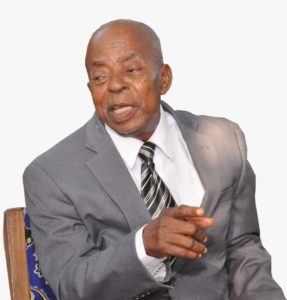
Considering our society being a patrilineal one where daughters marry out and leave the family, don’t you think society will resist equal distribution of property among sons and daughters?
In the case of Asika VS Atuanya, the Igbos were the worst. A reverend minister made a will and gave his only property in his life to his two children. The first born was the female child, while the second child was the male. After they jointly buried the father, the son went to the High Court in Enugu where they come from, seeking a declaration that the sister does not have the right under the Igbo custom called Oritafe to inherit the late father’s property. The judge, who was sitting hails from the Igbo culture and gave the judgment in line with the custom. That is why I have been saying people should not be appointed judges where they come from. A Nigerian from Oron should be able to sit in Calabar as a judge. But the Supreme Court ruled in favour of the female child.
Which one takes precedence between the law and the customs?
The law is clear and certain that any custom which runs counter to the constitution should be declared null and void. A first son in Oro went and sold one of the father’s plots of land. I went to Court and sued him in the name of the first sister who was born before him, Mrs. Olughu at Ukoku. I won the case. Even in the case of the two Igbo siblings, the person who sat at the Supreme Court was a woman from Kano. I started my practice before her. She pronounced the Igbo custom null and void and that is the position of the law.
You are a FESTAC scholar and started your practice since 1977 with excellent records of very interesting cases. Does it mean you aren’t qualified to become a SeniorAdvocate of Nigeria?
The Nigerian situation is ugly. For all the years I have practised, I have been put forward thrice but not appointed. I saw things for myself. If you are a senior advocate, you can then recommend the next lawyers in your chambers and they’ll confirm them for you. A lot of people can confirm what I am saying. It’s just a Nigerian situation. Even in politics and in appointment of top journalists, the case is the same. They are using relationships, especially native relationships, as a basis.
After about 44 years in active legal practice, are you likely to retire soon?
When it is my time, I will. When God calls me out of practice, I shall accept. It is God that determines when a private person retires.
As a custodian of culture and tradition, are you thinking of putting these things into black and white in terms of autobiography?
My public lectures abound. Whoever wants to read my papers can read my public lectures. The first one was: “Is Oro a Nation?” I wrote the paper in 1998. The document called “Oron Bill of Rights” was extracted from that publication. The paper was written when the conference of Niger Delta Development Commission (NDDC) came to Oron. I was agitating that if the Nigerian federation did not want Oron, they should allow us form a separate nation.
Why did you make that proposal?
In my thinking, Oron was and is still more than some nations in Africa. I was annoyed because of the way Nigeria was treating Oro. Even till now, they are not still treating us right. The other paper was “The Educated Oron Man”, where I posited that Oro people of civilized generation seem to break out from the bond of unity and forthrightness that was the case before.
RELATED: Gov Emmanuel Surpasses Previous Administration in Attending to Oro – President General Oron Union
How can one access these papers?
The papers are there, mostly in the hands of those who were patriotic and outstanding on issues of our nation. “The Educated Oron Man” was a paper I had used to blame the Oron man of this age. Oron people were known for being very nice. At the Eastern House of Assembly, lawyer Ita Toyo would be sitting and lifting his hands and the speaker would quickly say, “Yes, that’s Oron man”. Oron was a port in 1935. In that year, the Oron people made a law for whoever was a civil servant to surrender his one month salary into the purse. This was a yearly ritual.
This was how they raised money to pay the fees of those who were schooling overseas. But now, such a thing is no more happening. I cannot imagine that this is the same Oron where the Yorubas, Hausas and Igbos used to come from Onitsha to stay here and pass to Calabar.
There was a long standing rumour that Ibaka Deep Seaport was going to be relocated to Ibeno. Just some days ago, a maritime publication reported the official relocation of the seaport to Ibeno and its change of name to Ibom Deep Seaport. How do you feel?
Well, in 1969, they changed Mobil installation. Mobil used to be at Ibaka. The powers that be at that time argued that if the company didn’t want to go to Ibeno, they should leave the area. It is true that sometimes, government does horrible things. It will be a horrible thing to relocate the Seaport to Ibeno. There is something they call federal might. It is human beings, basically the politicians, who do these things. They have made several attempts to take Maritime Academy of Nigeria, Oron to somewhere else. Sometimes the transport minster and other stakeholders join forces to initiate steps on moving the Academy.
Some of the top national players who refused to acknowledge Oro as oil producing following recommendation of the National Assembly are still strategic players today. Are you worried that this might affect the ongoing agitations being carried out by Oro people?
But have you not heard that Ibrahim Magu of the Economic and Financial Crimes Commission (EFCC) has been recommended by the African Union as having done very well, even if the Senate rejected his nomination for three times? The Nigerian situation is like that. Magu has not even been confirmed by the National Assembly. Yet he’s still sitting there and conveniently receiving recommendations from the African Union. So, even those who did not allow the Oro people get the oil producing recognition are still being retained by the same system. We hope they can repent this time and do the needful.
What would be your greatest legacy when you bow out?
I want the Oron people and those from Akwa Ibom to know that a woman is like a man. If they want to share property, they should share them equally. The Constitution of Nigeria says nobody should be discriminated against on the basis of gender. When my daughter got married, I promised her that I will give her one plot of land in Calabar. I had long redeemed the pledge. This should tell people that daughters have rights of inheritance in their father’s houses.
Successful people leave behind outstanding successors. Are you grooming one of your children to be like you?
Well, it is not easy for you to say that a particular person will succeed you in your own terms. No man can actually give to himself an exact representation he desires. But two of my children and other relations are lawyers. We are six lawyers in our family.

